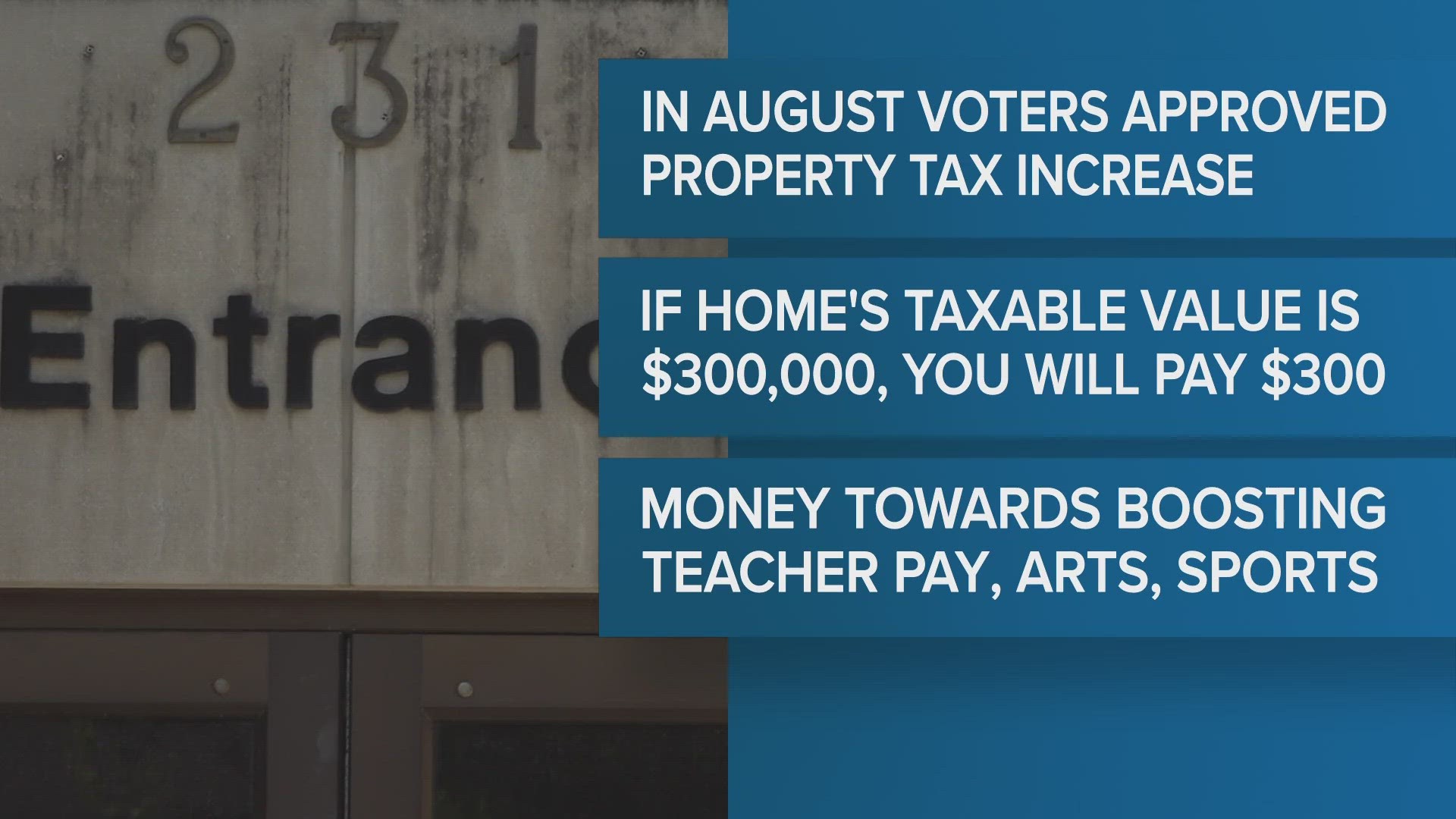JACKSONVILLE, Fla. — This story was originally reported by the Florida Times-Union, with added reporting by First Coast News.
JEA base rates for a typical residential customers will rise 4.3% in April — an increase amounting to $3.50 per month — under a proposal to bring in more revenue for the city-owned utility.
The rate increase will help JEA cover growing expenses to operate its electric system along with purchasing high-cost electricity from the Plant Vogtle nuclear plant in Georgia.
Here's how the proposed rate increase would show up on electric bills.
What is the electric rate in Jacksonville, and how would the rate increase affect JEA residential customers?
The typical residential customers using 1,000 kilowatt hours of electricity per month would pay an additional $3.50 per month on the base rate portion of the bill. That customer would see the base rate go from $80.46 per month for an existing bill to $83.96 under the proposed rate.
The base rate is the biggest portion of the electric bill. It covers the utility's debt payments, equipment purchases, salaries, payments to the city of Jacksonville, compliance with environmental regulations, and other day-to-day expenses.
For residential customers using 500 kilowatt hours per month, the base rate would go from $47.73 to $49.86, a 4.4% increase, and at the other end of the scale, someone using 2,000 kilowatt hours would see the base rate go from $145.92 to $152.17, a 4.3% increase.
Does the base rate increase affect the fuel charge part of bill?
No. The fuel portion of the bill, which is on top of the base rate, goes up and down each month based on JEA's actual cost of buying natural gas, coal and other fuel burned in its generating stations to produce electricity.
That market for buying fuel was a roller coaster but has settled down this year. For a residential customer using 1,000 kilowatt hours, the fuel charge portion of the bill was $30.51 in November 2021 before skyrocketing as high as $83.46 in September 2022.
Since April, the fuel charge for that typical residential customer's bill has ranged from $37.90 to $43.27 per month. JEA CEO Jay Stowe said the outlook for next 12 months is for the fuel charge to stay in that range.
"We watch that regularly and keep an eye on it, but right now, it's forecast to stay steady," he said.
How will commercial customers rates change?
About 50,000 small commercial customers and roughly 130 industrial customers could see increases of about 3% in their monthly bills.
What's next for the rate increase process?
The JEA board will vote Jan. 30 on calling for a rate hearing at its Feb.27 board meeting. The board then will vote March 26 on the new rates that will kick in on April 1.
Will there be future rate increases after April 2024?
Yes. JEA raised base rates in April 2023 and the increase coming up in April 2024 will be followed in future years by additional increases. The higher rates come as JEA will be shouldering more cost for electricity purchased from the Plant Vogtle nuclear plant in Georgia.
JEA entered into the Plant Vogtle agreement in 2008 and since then, the cost of building two new reactors has gone far over budget and taken years longer to complete. JEA does not have an ownership stake in Plant Vogtle but the power purchase agreement binds it to buy electricity from a part-owner of Plant Vogtle at a cost that is more expensive that originally expected.
“It’s a project that started in 2008 that’s just wrapping up. It’s 6,7,8 years delayed in completing and turned out to be a much more expensive project than initially thought," said Stowe.
Unit 3 of Plant Vogtle started sending electricity to JEA in July and Unit 4 is slated to come online by March. Plant Vogtle will provide 11% of JEA's electric needs through carbon-free generation of the power, which will move JEA toward its goal of using more carbon-free electricity for its customers.
"Vogtle's an expensive source of energy, but it's clean energy that helps support our long-term plan of reaching 35% clean energy by 2030," Stowe said. "I think it's still going to be something positive for us, but it's putting pressure on rates for the next few years."

